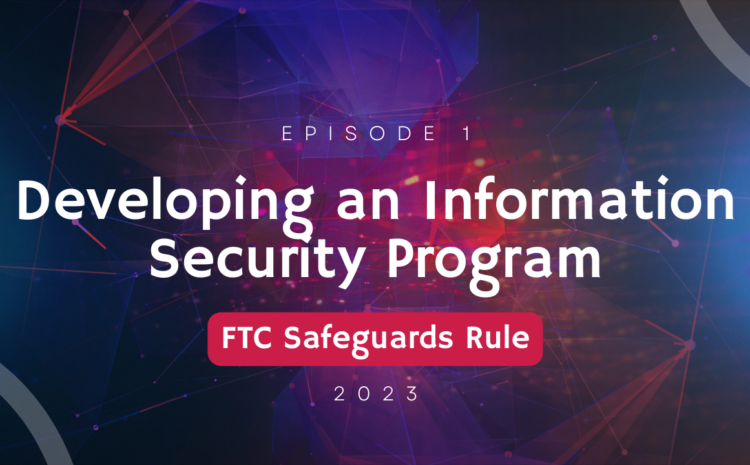
HPSI Podcast EP1: Developing a Written Information Security Program (WISP)
In the ever-evolving landscape of cybersecurity, small and medium-sized businesses (SMBs) are increasingly becoming targets for cyberattacks. The Federal Trade Commission (FTC) Safeguards Rule mandates that SMBs implement reasonable security measures to protect customer data.
In our latest podcast episode, we delve into two crucial elements of developing a robust information security program: conducting risk assessments and providing cybersecurity awareness training to employees.
Assessing Your Risks: The First Step to Security
A risk assessment is a fundamental step in establishing a comprehensive cybersecurity strategy. By identifying and evaluating potential threats and vulnerabilities, businesses can prioritize their security efforts and allocate resources effectively.
During a risk assessment, consider factors such as the type of data you collect, the potential impact of a data breach, and the likelihood of various cyberattacks. This process will help you determine the most critical areas to safeguard.
Empowering Your Employees: The Human Firewall
Employee education is paramount to any cybersecurity program. Human error is a leading cause of data breaches, and equipping your team with the knowledge and skills to recognize and mitigate cybersecurity risks is essential.
Cybersecurity awareness training should cover topics such as phishing scams, social engineering, password management, and safe online practices. Regular training sessions and simulated phishing exercises can help reinforce these concepts and keep your employees vigilant.
FTC Safeguards Rule: Compliance Made Easy
The FTC Safeguards Rule outlines nine elements that businesses must implement to protect customer data. These elements include designating a security officer, developing a written security plan, implementing data disposal procedures, and conducting regular audits.
By following these guidelines, SMBs can significantly reduce their risk of cyberattacks and comply with the FTC’s requirements.
Stay Informed, Stay Secure
Cybersecurity is an ongoing process, not a one-time event. Keeping up-to-date on the latest threats, vulnerabilities, and security best practices is crucial for maintaining a strong cybersecurity posture.
Our podcast series aims to provide SMBs with valuable insights and actionable strategies to enhance their cybersecurity posture and comply with the FTC Safeguards Rule. Subscribe to our podcast and join us on this journey towards a more secure digital landscape for SMBs.


